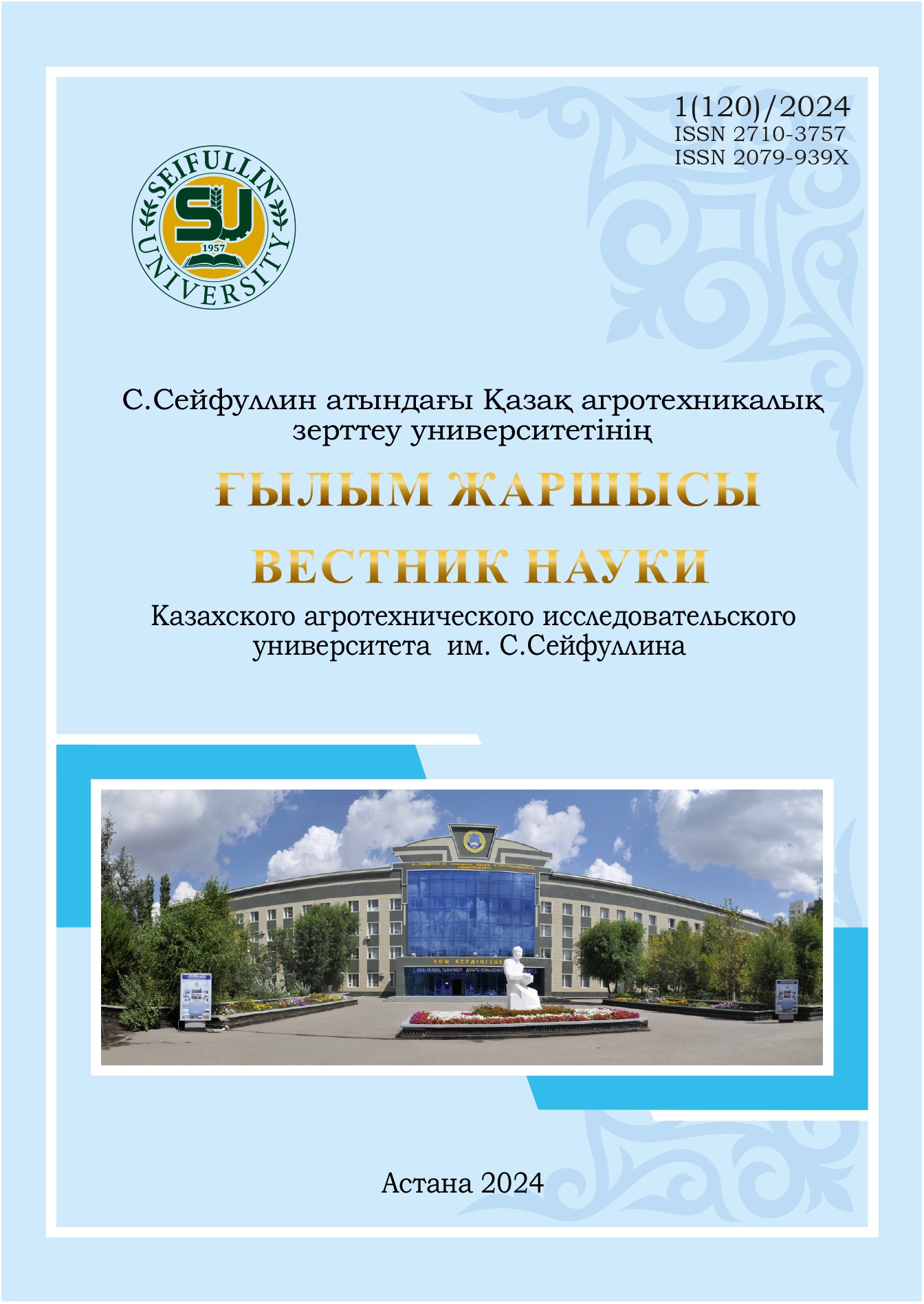INFLUENCE OF NATURAL VIRAL INFECTION ON POTATO PRODUCTIVITY IN AKMOLА REGION
DOI:
https://doi.org/10.51452/kazatu.2024.1(120).1633Keywords:
potato; productivity; enzyme-linked immunosorbent assay; potato virus; variety; breeding line; symptoms of viral diseases.Abstract
This article reflects the influence of the most common pathogens of viral diseases in the Akmola region on potato productivity. The purpose is to study the effect of viruses on the productivity of potato varieties and breeding lines in comparison with uninfected clones. Methods included testing potato breeding material for virus carriage using visual observation and enzyme-linked immunosorbent assay (ELISA), taking into account the productivity and structure of the crop. The main results showed that the productivity of naturally infected plants decreased compared to healthy plants by 4-80%, depending on the virus and genotype. At the same time, the dependence of the number of tubers on virus infection has not been established. A decrease in the productivity of the potato variety Xisen 6 by 80% was revealed as a result of exposure to potato leaf roll virus. During the study, potato virus Y symptoms were found in the Alliance variety and selection line 17-223-10 in the form of spotting, mosaic, in the Colomba variety in the form of leaf deformation, the appear-ance of yellow spots, growth retardation and reduction in leaf size, in lines 17-216-9 and 17-250-10 leaves were yellow in color. In the varieties Akzhar and Tustep, which confirmed infection with potato virus X using ELISA, a decrease in turgor and closure of the lobes was revealed. Plants of the Queen Anne variety affected by potato leaf roll virus had curled lower leaves and chlorotic spots appeared on the tips of the leaves. Symptoms of mild wrinkling appeared on the selection line 4-08-02 infected with potato virus S. The conducted research allows for the use of selected clones in virological and diagnostic studies, as well as in the selection and primary seed production of potatoes. Molecular-genetic studies of the strain composition will enable a more detailed characterization of Kazakhstani isolates of the studied potato viruses in the future.

